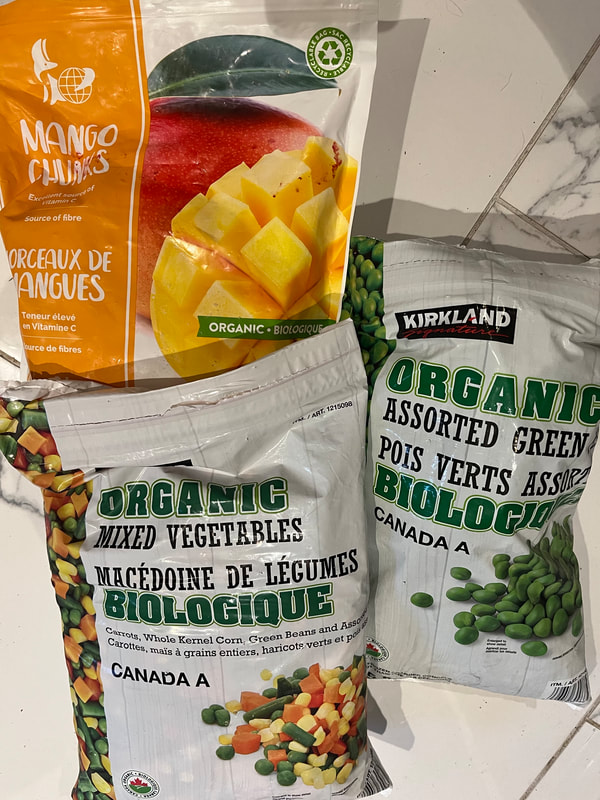
On my last trip to the grocery store I definitely noticed the increase in prices as I was shopping. With that in mind, I thought I would give you a few tips in order to help save you money.
- Use Frozen Fruit and Vegetables. I have taught a lot of people (1000s in fact) about grocery shopping. I always find it interesting to hear what people have to say when I bring up frozen fruit and veggies. Overall, I find that frozen fruit and veggies have a bad rep. They get looked down on, when, in fact, they are a great way to save money while still eating fruits and vegetables. We need to eat a lot of fruit and vegetables, and, especially with the cost lately, that can be very pricey and unrealistic. Even seasonally there can be a change in our fruit and vegetable intake. Using frozen can be a way to still get this very important food group but at a much better price. Using frozen fruit and vegetables can also help us get that nice rainbow of colour all year round. Frozen fruit and vegetables are very healthy and nutritious and are often a much better price than fresh, or when fresh is abundant you can freeze to use them at a later date.
- Eat More Beans and Lentils. Not only from a health perspective, but also a budget friendly shift, eating more beans and lentils can help. Beans and lentils are extremely healthy as they are a good source of fibre, they contain protein and iron, as well as B Vitamins such as B6 and folate. From a cost saving perspective, they are very inexpensive and can help lower that grocery bill for you. You can either skip the meat altogether and use beans and/or lentils as the protein source of your meal, or, you can cut down on the amount of meat you are using- for example by adding lentils in to ground beef.
- Don't Waste Sad Fruit and Vegetables. We all are familiar with those sad fruits and vegetables. Those wrinkly tomatoes or peppers, brown bananas, squishy berries, you know what I'm talking about. Instead of putting those in the compost and going to buy more try freezing them and using them for sauces, smoothies, baking, etc. This reduces food waste and helps the money you spent on food go further. There is no need to waste those perfectly good fruits and vegetables and spend money on more, that will likely have some turn to sad fruits so the cycle of food waste continues.
And for a bonus tip:
- Try to be more flexible! If a certain item is more expensive than you are used to, or more than you want to spend what could you sub it with? For example, could you use a different type of protein in that dish? What about a different vegetable? Or could you use frozen vegetables instead? It can be hard to branch out and be flexible, but not only does it increase the variety of foods you eat, it also can be a great way to save money.
I hope you find these tips helpful and that they help you save a bit of money.
References:
https://www.unlockfood.ca/en/Articles/Cooking-Food-Preparation/Cooking-with-Legumes.aspx
Want more tips to help you save money on groceries? Contact Jill, Nurture The Future's Registered Dietitian at [email protected]

 RSS Feed
RSS Feed

.png.aspx?width=150&height=150)
